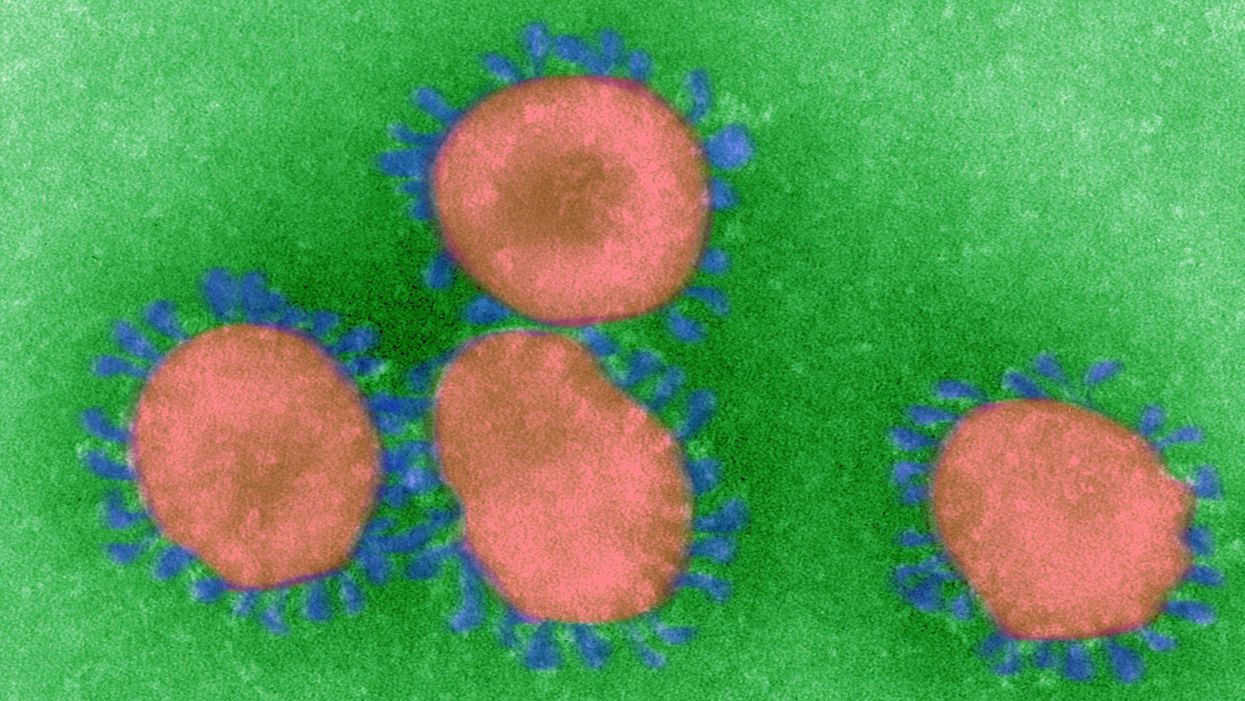
Photo By BSIP/Universal Images Group via Getty Images

Something we all get just might reduce the number of new COVID-19 cases
Could the common cold actually play a role in helping mankind ward off COVID-19? Researchers from a British university said this week that it appears that could be the case.
Scientists at the University of Glasgow revealed a study that found the human rhinovirus, which causes the common cold, "triggers an innate immune response" that appears to block the novel coronavirus from replicating in respiratory tract cells.
According to a release from the school, the research was published Tuesday in the Journal of Infectious Diseases and led by scientists from the MRC-University of Glasgow Centre for Virus Research, also known as CVR.
The school said that studies and mathematical simulations by the team appeared to show that the interaction between the two viruses could have a "population-wide effect" and that "an increasing prevalence of rhinovirus could reduce the number of new COVID-19 cases."
More from the University of Glasgow's report:
Human rhinoviruses cause the common cold and are the most widespread respiratory viruses found in people. Previous research has shown that interactions between rhinoviruses and other respiratory viruses can affect the type and severity of infections in individuals, and the way in which they infect and circulate around groups of people (patterns of infection).
Viruses only infect a small number of cell types within the body, and respiratory viruses typically infect cells within the respiratory tract.
In the study, the researchers first infected human respiratory cells with SARS-CoV-2 in the lab, recreating the cellular environment in which infections normally occur. They then studied the replication of SARS-CoV-2 in these cells, both in the presence and absence of rhinovirus.
CVR professor Pablo Murcia said his team found that "human rhinovirus triggers an innate immune response in human respiratory epithelial cells which blocks the replication of the COVID-19 virus, SARS-CoV-2."
What does this mean?
According to Murcia, "This means that the immune response caused by mild, common cold virus infections, could provide some level of transient protection against SARS-CoV-2, potentially blocking transmission of SARS-CoV-2 and reducing the severity of COVID-19."
Though he noted that the team's findings will hopefully lead to new "strategies and control measures for COVID-19 infections," the professor still believes that vaccinations are the best way to protect against COVID-19.
(H/T: New York Post)